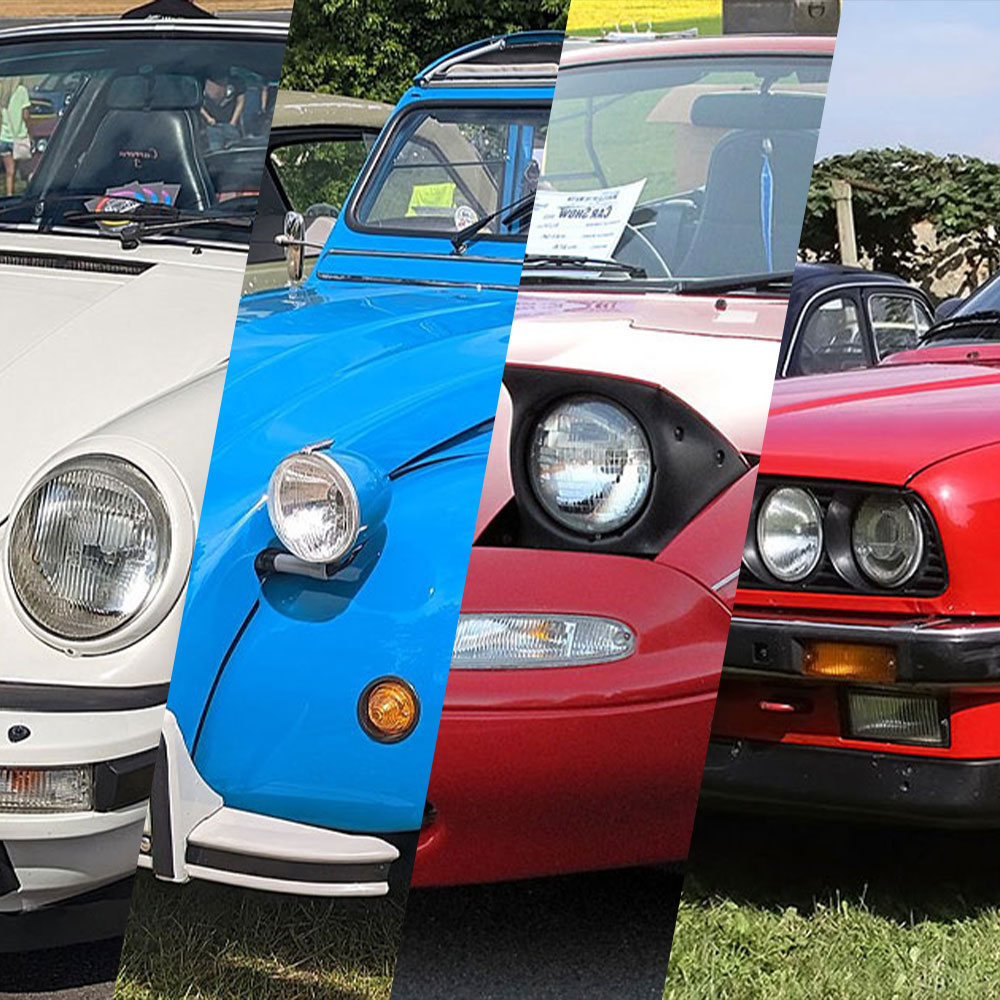1. Ford Mustang Convertible (1964)
The first-generation Ford Mustang Cabriolet, or “Convertible” if you want to pronounce it the American way, is an automotive legend, often regarded as the very symbol of the American convertible car. When it was launched in 1964, this iconic car revolutionised the market with its sporty design and remarkable power. This convertible even played a major role in the emergence of “pony cars”, sports cars with a racy style that differed from “muscle cars” in that they were slightly smaller and more refined in appearance. Equipped with a V8 engine and a displacement ranging from 2.8 litres to 7 litres, depending on the version, the Mustang Convertible has plenty of power under the bonnet and has captured hearts with its power and distinctive roar. With over 2.6 million units sold worldwide, the popularity of the Ford Mustang Convertible has been particularly strong in the United States, where it has been a phenomenal success
In terms of the soft top, early models were often fitted with a vinyl roof. This tough, durable material was used extensively to complement the iconic styling of the Mustang Convertible.
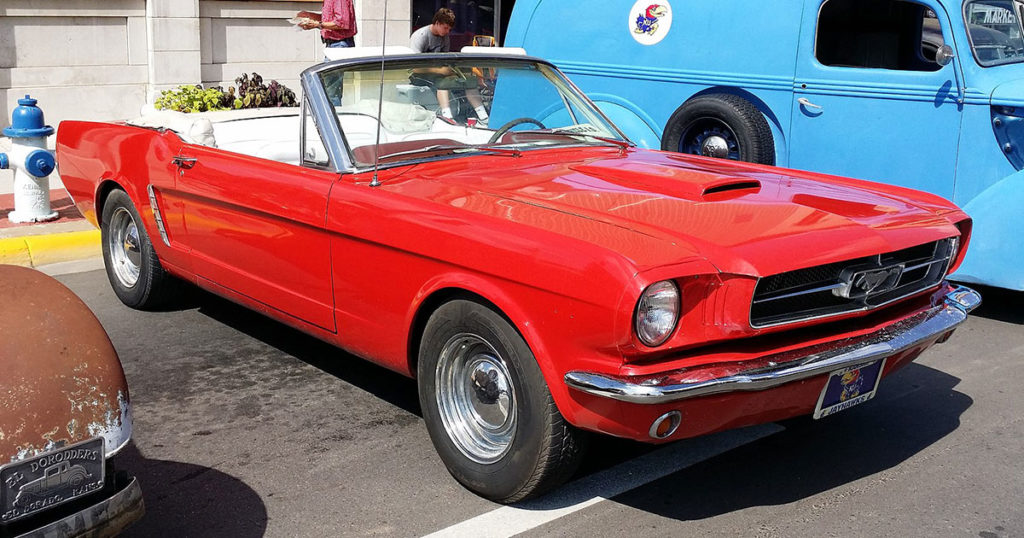
2. Volkswagen Beetle Convertible (1949)
The Volkswagen Beetle Convertible embodies automotive history with its distinctive design and worldwide popularity. Although originally launched in 1949, it remained in production until 1980, a testament to its enduring appeal. Having got off to a rocky start just a few years before the outbreak of the Second World War, it was not until after the war that production really took off. The cabriolet version, produced as a 2-seater (by Hebmuller) or a 4-seater (by Karmann), was a resounding success. With a modest power output of between 25 and 50 bhp and a cubic capacity ranging from 1.1 litres to 1.6 litres, this Volkswagen icon was produced in over 21 million units worldwide! The Beetle Cabriolet was particularly popular in Europe and the United States, where it found a huge market.
The Beetle Cabriolet’s soft top was generally made from vinyl, a robust material that was more attractively priced than alpaca, and which fitted in perfectly with the desire to produce a car that was accessible to as many people as possible.
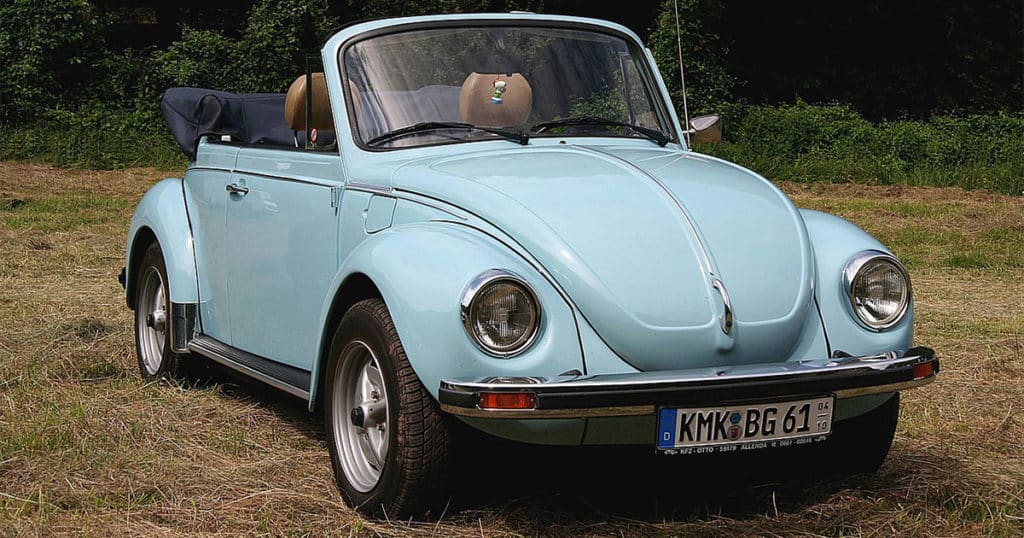
3. Mercedes-Benz SL-Class Convertible (1952)
The Mercedes-Benz SL-Class embodies luxury and performance in the world of convertibles. Since its launch in 1952, this series has continued to evolve, offering world-class performance. With powerful engines ranging from 2.0 litres to 7.3 litres, it has appealed to discerning motoring enthusiasts. With more than 550,000 units sold worldwide, the SL-Class’ appeal extends to many countries, but it has been particularly popular in Europe and the United States. It’s a model that’s endured at Mercedes-Benz: since 1952, no fewer than 9 versions have been produced, each with a large number of variations, the most recent being the Type R232.
The soft top of the Mercedes-Benz SL-Class cabriolet was often made from Sonnenland Alpaca, a top-of-the-range material that added to the luxury of this iconic car. Today, a wide range of accessories are available for models such as the 190SL, allowing owners to restore and equip their vehicles.
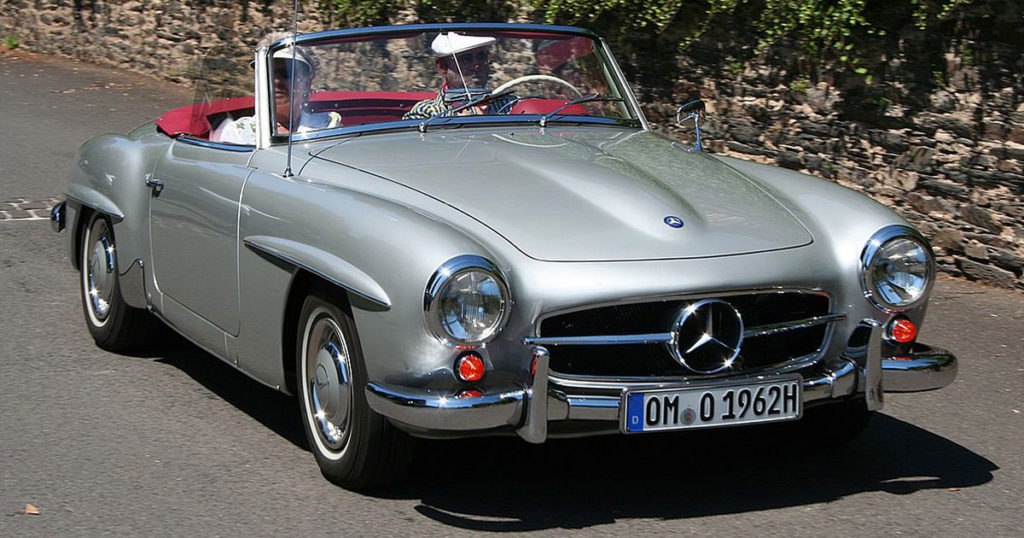
4. Mazda MX-5 Convertible (1989)
How can you rank the world’s best convertibles without mentioning the famous Mazda MX-5 convertible?Also known as the Miata in North America and the Eunos Roadster in Japan, the MX-5 has redefined the convertible segment since its introduction in 1989.With an engine generally ranging from 1.6L to 2.0L in displacement and power ranging from 90 to 184 hp, it offers balanced performance for the ultimate driving experience.More than 1 million units were sold worldwide, and it was particularly popular in the United States, Europe and Japan.Legend has it that the lines of this famous convertible were inspired by the family of small British roadsters, including the Lotus Élan. Under the bonnet of the first-generation Miata is a rocker cover imitating that of the British convertible… We are now in the 4th generation of the famous convertible with the Mx5 ND, launched in 2015, and a targa version is also available.
The soft top of the MX-5 Miata NA was usually made of vinyl, a reliable and waterproof material that contributed to its success. It then evolved with each version and will now also be available in alpaca. Despite more than 30 years of existence and several versions, spare parts and accessories for the MX5, such as the soft top, luggage rack and windscreen, are easy to find and add a touch of style to your convertible.
LeBlogduCab also features a testimonial from the owner of an NB FL version of the Mazda MX-5.
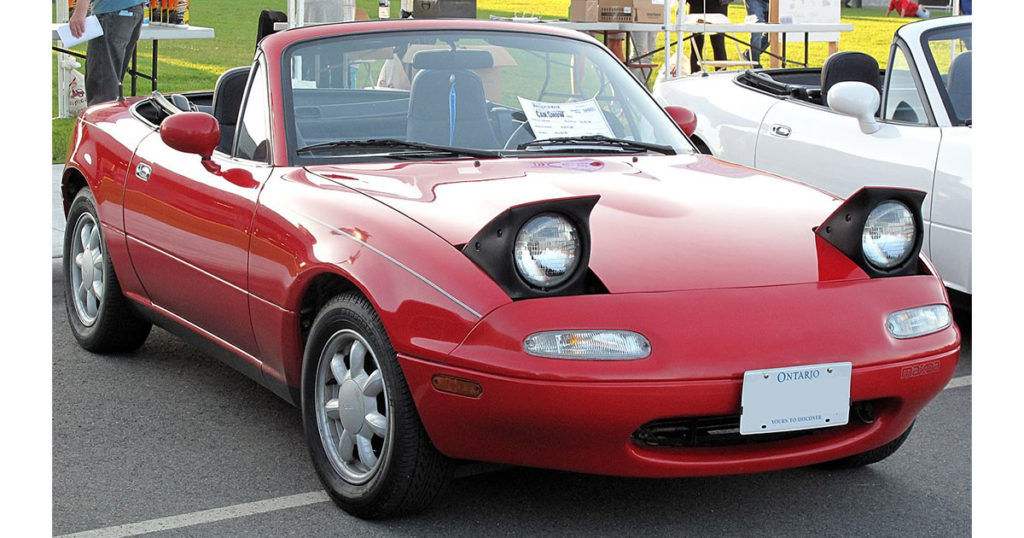
5. Porsche 911 Carrera Convertible (1982)
The Porsche 911 Carrera Cabriolet embodies the perfect marriage between performance and the relaxed elegance of a cabriolet car. The engines of this legendary car, ranging from 3.0L to 3.8L in displacement, generate power from 200 to over 400 bhp. With over 300,000 units sold worldwide, it found a vast market in the United States, Europe and the Middle East. There were several convertible versions of the 911, with all or just part of the roof able to open, either thanks to a flexible canvas, removable roof panels or a panoramic rear window. One of Karman’s prototypes of a 911 cabriolet with a fully folding soft top was offered at auction in 2016, and was estimated to fetch between €850,000 and €1 million. This prototype is one of the last remaining of the 13 produced in 1964, demonstrating the importance of research for the German firm, which didn’t release its first 911 cabriolet until 1982! Are you a Porsche fan? Did you know that the Porsche Museum in Stuttgart is offering a free online virtual tour so that you can visit the museum and all its jewels as if you were there!
The bonnet of the Porsche 911 Carrera Cabriolet was often made from alpaca, reflecting the brand’s concern for quality and refinement.
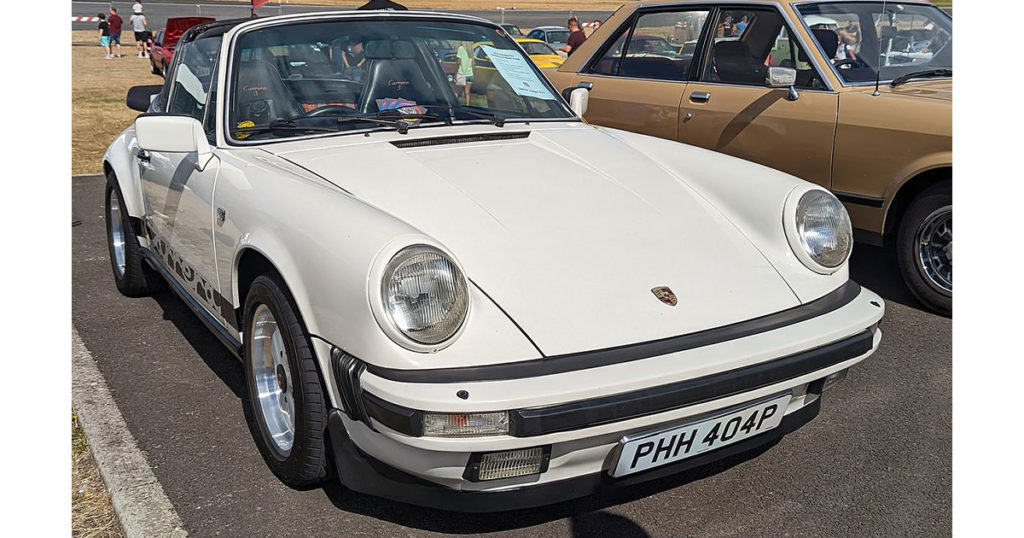
6. Peugeot 205 Convertible (1986)
The Peugeot 205 Cabriolet embodies the essence of open-top driving pleasure. Launched in 1986, this elegant convertible has captivated lovers of sporty driving. Powered by petrol engines from 1.4L to 1.9L, it offered a range of power outputs from 75 to 130 bhp, guaranteeing exhilarating performance. With around 45,000 units sold worldwide, the 205 cabriolet was a great success in Europe, particularly in France, where it won over a passionate public.
The Peugeot 205 cabriolet’s soft top was initially made from vinyl, offering remarkable waterproofing and durability. This choice of material was perfectly suited to the car’s modern, sporty image. The 205 Cabriolet represents a successful blend of refined French design and entertaining driving, and remains a coveted car among classic convertible enthusiasts.
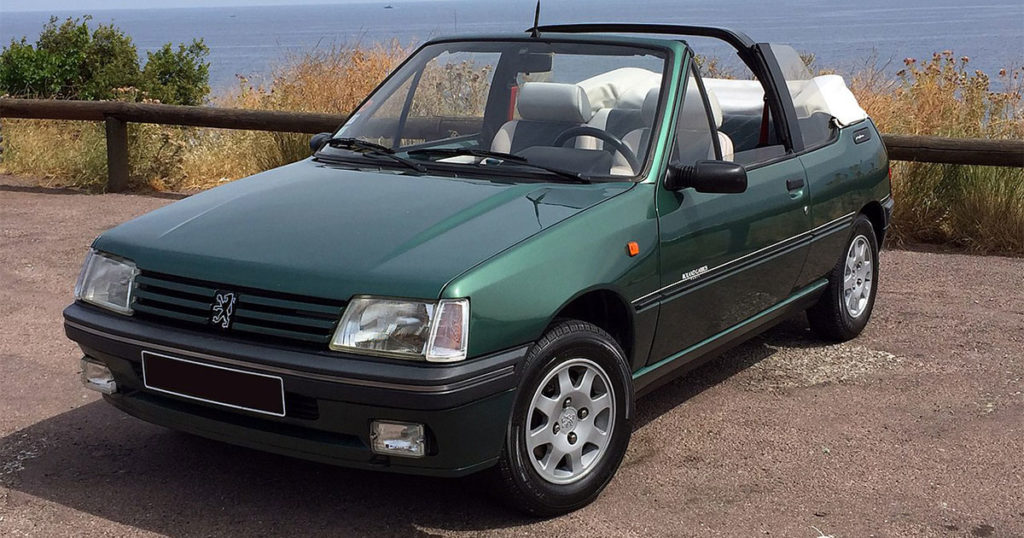
7. Citroën 2CV Convertible (1948)
The Citroën 2CV cabriolet embodies the spirit of simplicity and freedom. Launched in 1948, this iconic car has won the hearts of many drivers thanks to its minimalist design and adaptability to all situations. Powered by a 0.4-litre petrol engine, the 2CV developed around 9bhp, giving priority to fuel efficiency and practicality. With over 3.8 million units sold worldwide, it was particularly popular in Europe, especially in France, its home market, as well as in Africa and South America.
The 2CV Cabriolet came with a soft top, and in its early days, this was generally made of vinyl. This choice of material was perfectly suited to the car’s image of robustness and versatility. The 2CV cabriolet epitomised the popular French car, as evidenced by its many film appearances. Remaining true to its iconic design, it is still cherished by vintage car enthusiasts.
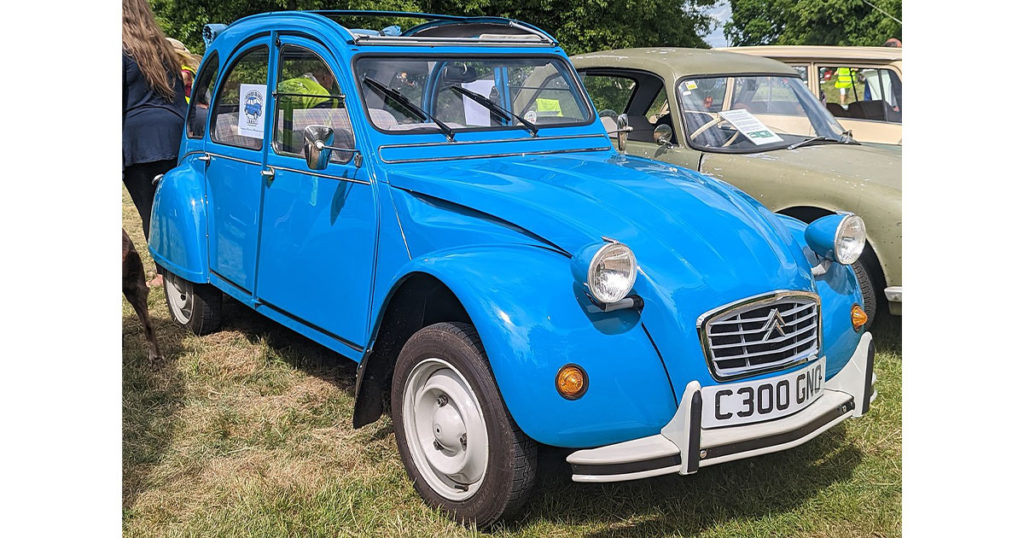
8. Ferrari 250GT California Convertible (1957)
The Ferrari 250 California embodies the very essence of refinement and performance. Produced between 1957 and 1962, this work of automotive art marked its era with its unrivalled design and its V12 engine with a displacement of 3.0L to 3.5L, generating between 220 and 280 horsepower. With only 106 units produced, it remains a rarity that is highly prized by collectors.
As for the soft top, when it first came out, the Ferrari 250 California’s soft top was often made from alpaca, adding a touch of luxury to this iconic car. This choice reflected the Italian marque’s relentless pursuit of quality and refinement. The 250 California is a timeless testament to Ferrari’s expertise, combining performance, aesthetics and rarity, making it a coveted jewel on the classic car market.
A number of special versions of the Ferrari 250 California have been produced, including the Spyder California SWB and the Spyder California LWB, each with its own improvements and exclusive features.
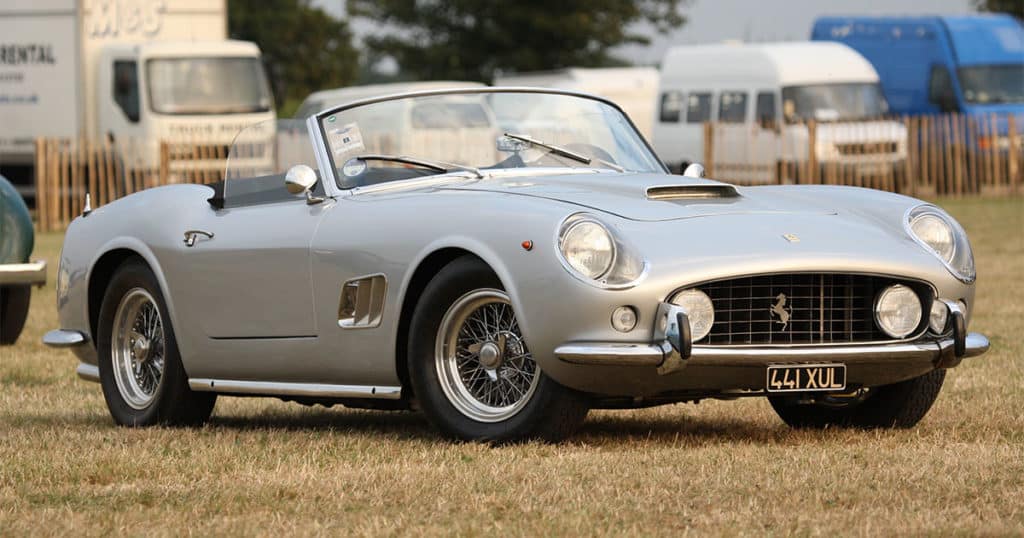
9. BMW Serie 3 E30 Convertible (1987)
The BMW 3 Series Convertible embodies the harmonious union of sportiness and luxury. Equipped with petrol engines ranging from 1.6 to 3.2 litres in displacement, it offers performances ranging from 90 to over 330 bhp, guaranteeing an exhilarating driving experience. With over 800,000 units sold worldwide, it has captured the hearts of convertible enthusiasts, particularly in Europe and the United States.
When the BMW 3 Series Convertible was launched, the soft top was generally made from alpaca. This waterproof, hard-wearing material added to the aesthetic appeal of this iconic car. It emphasised its modern, sporty image, making it a popular choice in the Convertible market.
The BMW 3 Series Convertible embodies German excellence, combining performance, sophistication and versatility. It remains a symbol of elegance and dynamic driving, and is as popular as ever in the Convertible market.
Are you particularly interested in the 3 Series Cabriolet? Discover also on LeBlogduCab the testimonial of an owner of a BMW E30 320i cabriolet.
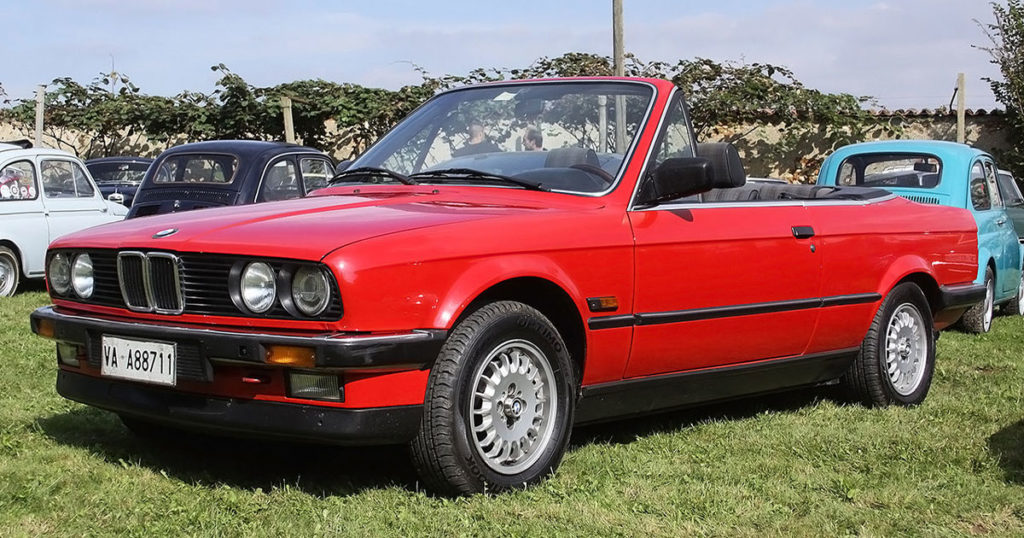
10. Jaguar E-Type Roadster Convertible (1961)
The Jaguar E-Type convertible embodied the perfect blend of power and sophistication. Powered by an in-line 6-cylinder engine with a displacement of between 3.8 and 4.2 litres, it offered remarkable performance, delivering between 265 and 265 horsepower. Launched in 1961, this iconic car captured the hearts of convertible enthusiasts the world over. Europe, particularly the UK, was a major market for this rolling work of art.
As for the soft top, in its early days, the Jaguar Type-E convertible’s soft top was often made from alpaca. This choice of material reflected the British marque’s commitment to quality and elegance. Alpaca added to the aesthetics of this iconic car, contributing to its image of luxury and refinement.
The Jaguar Type-E Cabriolet is a masterpiece of automotive engineering, combining sporting performance, iconic design and British heritage. It remains a symbol of Jaguar craftsmanship and continues to appeal to classic car and open-air driving enthusiasts.
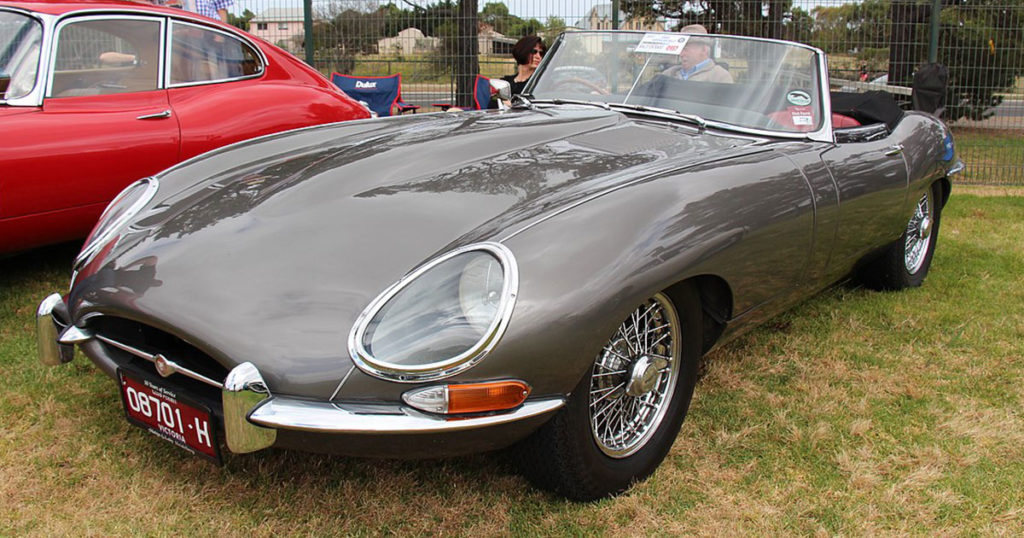
Every convertible car in this ranking has left an indelible mark on motoring history, attracting enthusiasts around the world. Whether for their performance, design or prestige, these cars will continue to be celebrated for many generations to come. Some of the vehicles featured above are not best known for their convertible variants, but these have always appealed to their owners. If you’d like to read some owner testimonials, or get an idea of what life in a cabriolet is like, we invite you to discover the story of this beautiful Peugeot 304 cabriolet or this imposing Ford Thunderbird cabriolet! See you soon on the Cab Blog 😉

